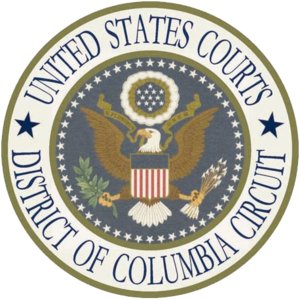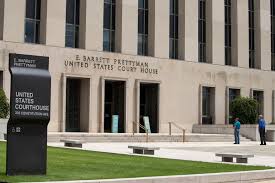Litigation
Implementing the “Biden Environmental Litigation Bounce-Back”
Encouraging Signals As To How Biden’s USDOJ Will Resolve Environmental Lawsuits Originally Brought Against the Trump Administration
The transition from the Trump Administration to the Biden Administration makes for fascinating spectator sport. President Biden’s first month in office reveals that he and his Administration are committed to undoing the widespread damage former President Trump and his minions engineered across so many policy and legal areas. The environment is a particularly prominent example. …
Continue reading “Implementing the “Biden Environmental Litigation Bounce-Back””
CONTINUE READINGThe End of the Juliana Litigation–Or Is It?
Ninth Circuit Court of Appeals Denies Rehearing, But Landmark Climate Change Litigation’s Impact Will Endure
Last week, the U.S. Court of Appeals for the Ninth Circuit denied rehearing en banc in one of the nation’s most closely-watched climate change lawsuits: Juliana v. United States. But the legal and policy impact of this landmark litigation will endure. And the case itself may not be concluded. Juliana involves a novel legal argument: that …
Continue reading “The End of the Juliana Litigation–Or Is It?”
CONTINUE READINGLiberal Judges Embrace Textualism
Why are these judges suddenly so enthusiastic about Justice Scalia’s approach to reading statutes?
Two of Trump’s major regulatory efforts were recently thrown out by the D.C. Circuit. The liberal judges who wrote the opinions latched onto a conservative theory called textualism, which was most prominently advocated by Justice Antonin Scalia. While judges in an earlier era tried to interpret Congress’s intent in writing a law, textualists focus solely …
Continue reading “Liberal Judges Embrace Textualism”
CONTINUE READINGDC Circuit Gets Help from Grid Experts in Vacating ACE Power Plant Rule
The importance of understanding how things work
I’ve seen lots of good analysis already (including this post from Dan) of the DC Circuit’s decision today to invalidate the Trump Administration’s ACE Rule, which governs climate emissions from coal-fired power plants and does essentially nothing to reduce those emissions. It turns out that doing essentially nothing is not enough. There’s a lot to …
Continue reading “DC Circuit Gets Help from Grid Experts in Vacating ACE Power Plant Rule”
CONTINUE READINGA Big Win for Climate Regulation
The DC Circuit overturns Trump’s effort to hamstring regulation of carbon from power plants.
The D.C. Circuit issued an opinion today knocking out Trump’s Affordable Clean Energy rule. The Trump rule was a rollback of Obama’s keystone climate initiative, the Clean Power Plan. The majority opinion plus dissent take up 185 pages, and I won’t try to describe it all here. Briefly, here’s what the appeals court ruled and …
Continue reading “A Big Win for Climate Regulation”
CONTINUE READINGClimate Change, Big Energy & The U.S. Supreme Court–What Could Possibly Go Wrong?
BP v. Baltimore Is First Environmental Case To Come Before Newly-Reconstituted High Court
On Tuesday, the U.S. Supreme Court will hear oral arguments in its first environmental case of the 2020-21 Term. That case, BP PLC v. Mayor and City Council of Baltimore, involves an important, nationwide climate change litigation trend, and will provide the first indication of the post-Ginsburg Court’s attitude towards environmental law and litigation generally. The Baltimore case is …
Continue reading “Climate Change, Big Energy & The U.S. Supreme Court–What Could Possibly Go Wrong?”
CONTINUE READINGThe California Supreme Court’s Most Important Environmental Law Decisions of 2020
It Was a Relatively Quiet Year for Environmental Law in the California Supreme Court
[This is the third and final installment in a series of posts highlighting the most significant environmental law decisions of 2020. Earlier this week, I profiled the key 2020 environmental rulings by the U.S. Supreme Court and the U.S. Court of Appeals for the Ninth Circuit. This post concludes the series with an examination of …
Continue reading “The California Supreme Court’s Most Important Environmental Law Decisions of 2020”
CONTINUE READINGThe Ninth Circuit’s 10 Most Important Environmental Law Decisions of 2020
Climate Change, California v. Trump Cases Lead the List
This is the second of three year-end posts on the most important environmental law decisions in 2020 from the U.S. Supreme Court, U.S. Court of Appeals for the Ninth Circuit and California Supreme Court. (The key U.S. Supreme Court rulings were the focus of yesterday’s post, and tomorrow’s will feature California Supreme Court decisions.) Today, …
Continue reading “The Ninth Circuit’s 10 Most Important Environmental Law Decisions of 2020”
CONTINUE READINGThe U.S. Supreme Court’s Most Important 2020 Environmental Law Decisions
Clean Water Act, CERCLA, Native American Law and Trump’s Border Wall Lead the List
It’s become customary for critics and observers from many disciplines to publish a wide variety of lists at year’s end, nominating the most important or best movies, music, plays, etc. of the preceding year. Why not follow that tradition in the fields of environmental law and policy? With that objective in mind, I plan over …
Continue reading “The U.S. Supreme Court’s Most Important 2020 Environmental Law Decisions”
CONTINUE READINGDownstream Emissions
A new court ruling could doom the Trump Administration’s ANWR plan.
A Ninth Circuit ruling yesterday overturned approval of offshore drilling in the Arctic. The ruling may directly impact the Trump Administration’s plans for oil leasing in the Arctic National Wildlife Refuge (ANWR). By requiring agencies to consider emissions when fossil fuels are ultimately burned, the Court of Appeal’s decision may also change the way that …
Continue reading “Downstream Emissions”
CONTINUE READING









